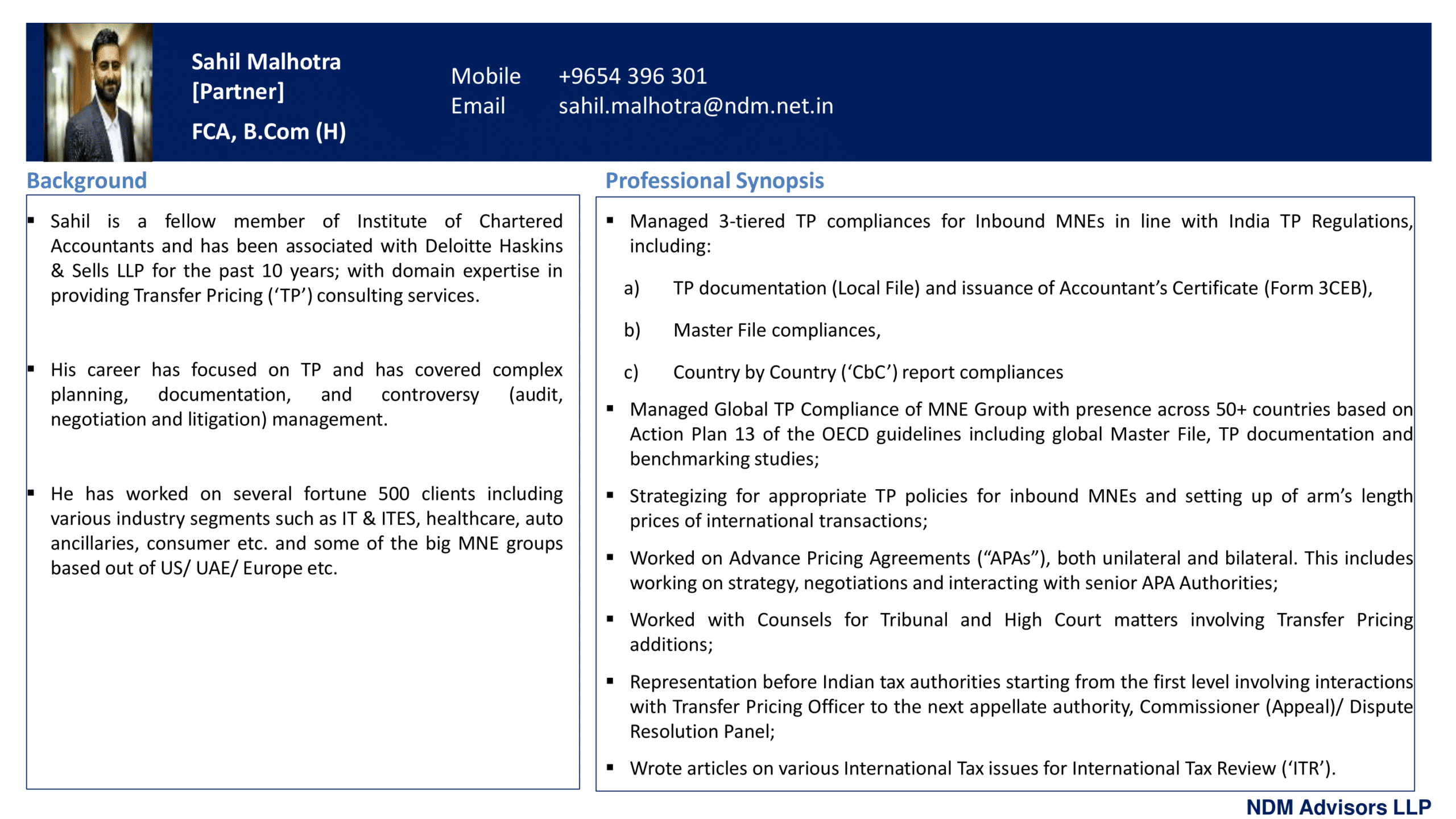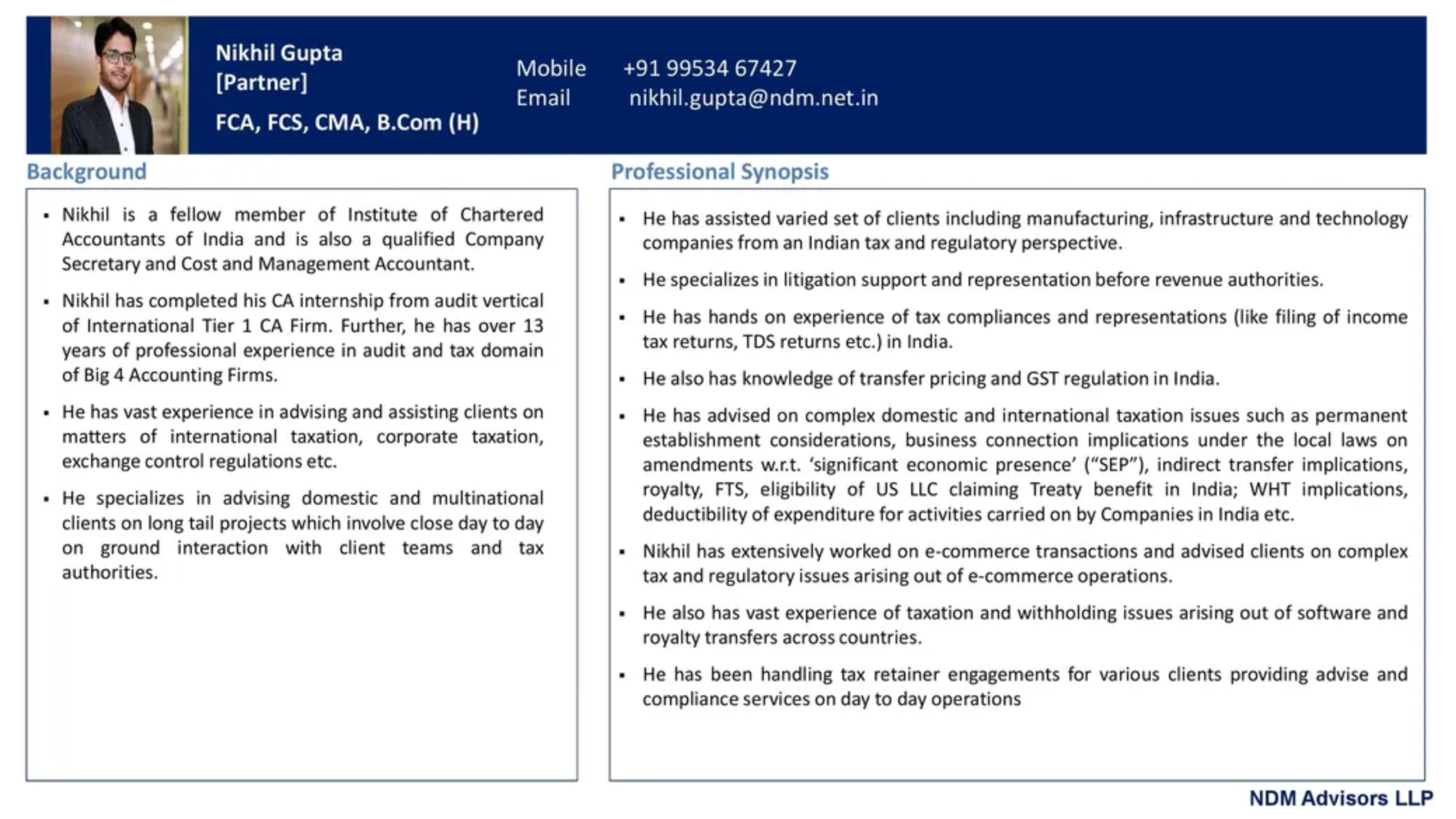India Entry Strategy
Attributing to its vast market size, rich supply of raw materials and accelerated infrastructural developments, India is one of the most favourable geographies for overseas investors looking to set-up their business presence in India. India not only provides a conducive environment for business but also offers tremendous opportunities for the investors. There has been a continuous surge in foreign direct investment (“FDI”) in the country. However, Indian market poses its unique challenges pertaining to products, consumers, law, taxation etc. and therefore, prior to setting up of business, it is imperative to understand the process and the governing laws of the country and conduct a feasibility study.

A foreign entity can commence operations in India through the following routes:
Corporate Structure: Wholly Owned Subsidiary in India
A foreign company, setting up an eligible business activity, may register a wholly owned subsidiary (“WOS”) in India. WOS is a preferred business vehicle for those who wish to have limited liability and prefer to keep total control over the business. A WOS can be set-up as a private limited or a public limited company. Most Small and Medium Enterprise prefer to set up as a Private Limited Company which is a closely held company. We help in opening and incorporating a company in India.
Corporate Structure: Joint Venture in India
Joint Venture (JV) refers to the formation of a new company by 2 or more partners who join hands for a common objective.
Setting up of operations through a Joint Venture may provide the following advantages to a foreign investor:
- Already established distribution / marketing set up of the Indian partner.
- Available financial resources of the Indian partner.
- Already established contacts of the Indian partners that help ease the process of setting up operations.
- Getting entry into sectors which don’t allow exclusive ownership by foreign investors

Limited Liability Partnership in India
Limited Liability Partnership (“LLP”) is a partnership having a separate legal entity and limited liability. It’s basically a hybrid of traditional partnership and a private limited company. With the intent and objective to promote LLPs as a structure for foreign investors, the Indian government has recently permitted FDI in LLPs in a calibrated manner. LLP enjoys tax advantages over a company and is comparatively easier to manage with less compliance levels as compared to a company form of organization. To view the comprehensive document on India Entry Strategy and Doing Business in India, please click here. For any further queries on entry strategy in India, you may write to us on.
NDM has great deal of experience in assisting overseas entities to kick-start their operations in India in providing the following services:
- Market Feasibility Study;
- Entity Incorporation;
- Fund Planning and Capital Budgeting;
- Tax Planning;
- Revenue Flow Planning and Repatriation Strategy;
- Permanent Establishment and Transfer Pricing Planning.
Related Post
Have Any Question?
Send us a message and tell us more about your business and financial goals. We will get back to you soon to schedule a consultation.


















